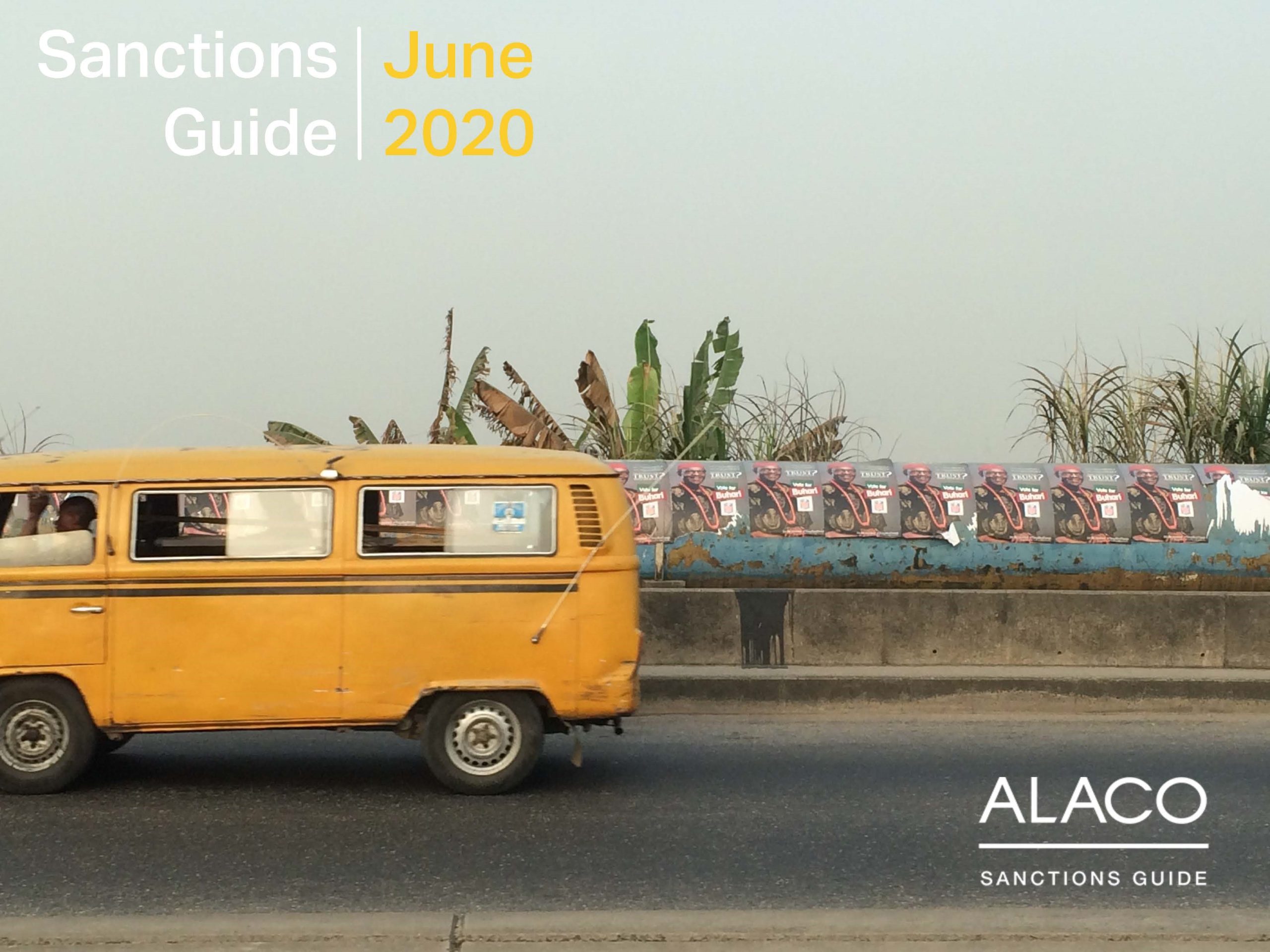Sanctions Guide – June 2020
Key developments this month include heightened US tensions with China over Xinjiang and Hong Kong, Washington’s sanctioning of Iran’s interior minister for alleged human rights abuses and efforts to curb the growing problem of maritime sanctions evasion.
- US legislative efforts to impose sanctions on Chinese officials appear to be gathering speed. The House of Representatives recently approved legislation calling for sanctions against Chinese officials involved in alleged human rights abuses against Uighurs and other Muslim groups in western Xinjiang province, which President Trump may sign into law in the coming weeks.
Senior US officials have also spoken publicly of plans to impose sanctions against Chinese and Hong Kong officials who have been “directly or indirectly involved” in undermining Hong Kong’s autonomy. Reflecting the US determination that new Chinese national security legislation outlawing sedition, secession and subversion has effectively ended the colony’s independence from the mainland, the US also announced that it was ending the territory’s special trading ties with America.
- Amid growing evidence of maritime sanctions evasion, OFAC has issued an advisory urging the shipping industry to be alert to deceptions aimed at circumventing US trading restrictions on energy and metals cargoes. Washington is concerned that clandestine shipping is helping North Korea and Iran to limit the effectiveness of America’s ‘maximum pressure’ sanctions regimes against both countries. OFAC has called on shipping industry stakeholders to be vigilant against a range of detection-avoidance tactics employed by vessels engaged in illicit trade, such as switching off their automatic identification systems, falsifying the flags of their vessels, ship-to-ship transfers and the use of complex business structures to disguise a cargo’s ultimate ownership. While Iran’s oil exports have plunged due to sanctions, it is still thought to supply China through clandestine ship-to-ship deliveries, while evidence of North Korea’s illicit export of coal to China was recently documented by the UN Panel of Experts.
- The US has sanctioned Iran’s interior minister Abdolreza Rahmani Fazli for his alleged role in the suppression of non-violent protests over a fuel price hike in 2019. He was among 12 individuals, including senior law enforcement officials, and entities penalised by the Treasury over alleged human rights abuses.
In a separate development, the US has warned that if the UN Security Council does not extend an arms embargo on Tehran – part of the Iran nuclear deal, or JCPOA – it will do so by triggering the re-imposition of all UN sanctions. The US is preparing a resolution extending the ban, set to expire in October, but it is likely to be vetoed. If blocked, Washington says it reserves the right as a party to the JCPOA to trigger the so-called snapback sanctions process that would see the arms embargo reinstated. Washington exited the JCPOA in 2018, but its name remains on the UN resolution enshrining the deal. US snapback efforts, however, are likely to be resisted by other Security Council members.
- Venezuela, which has the world’s largest reserves of oil, is taking delivery of Iranian fuel and refining components in defiance of US sanctions. Washington and the Venezuelan opposition suspect that Caracas is paying for the supplies with gold from the country’s Central Bank. Five tankers from Iran have already delivered cargoes thought to be enough to meet the country’s current petrol needs for up to 20 days. The oil trade violates US sanctions against both countries, but the alleged “gold for products” transactions are hard to detect and penalise because they avoid the global banking system. Caracas, which has in the past reportedly sold gold to international buyers to raise hard currency, has launched a legal case against the Bank of England to force it to release $1 billion of Venezuelan gold, retained due to British and US sanctions against Venezuela. Venezuelan officials say they want the bank to sell part of the reserves to help pay for efforts to combat coronavirus.


